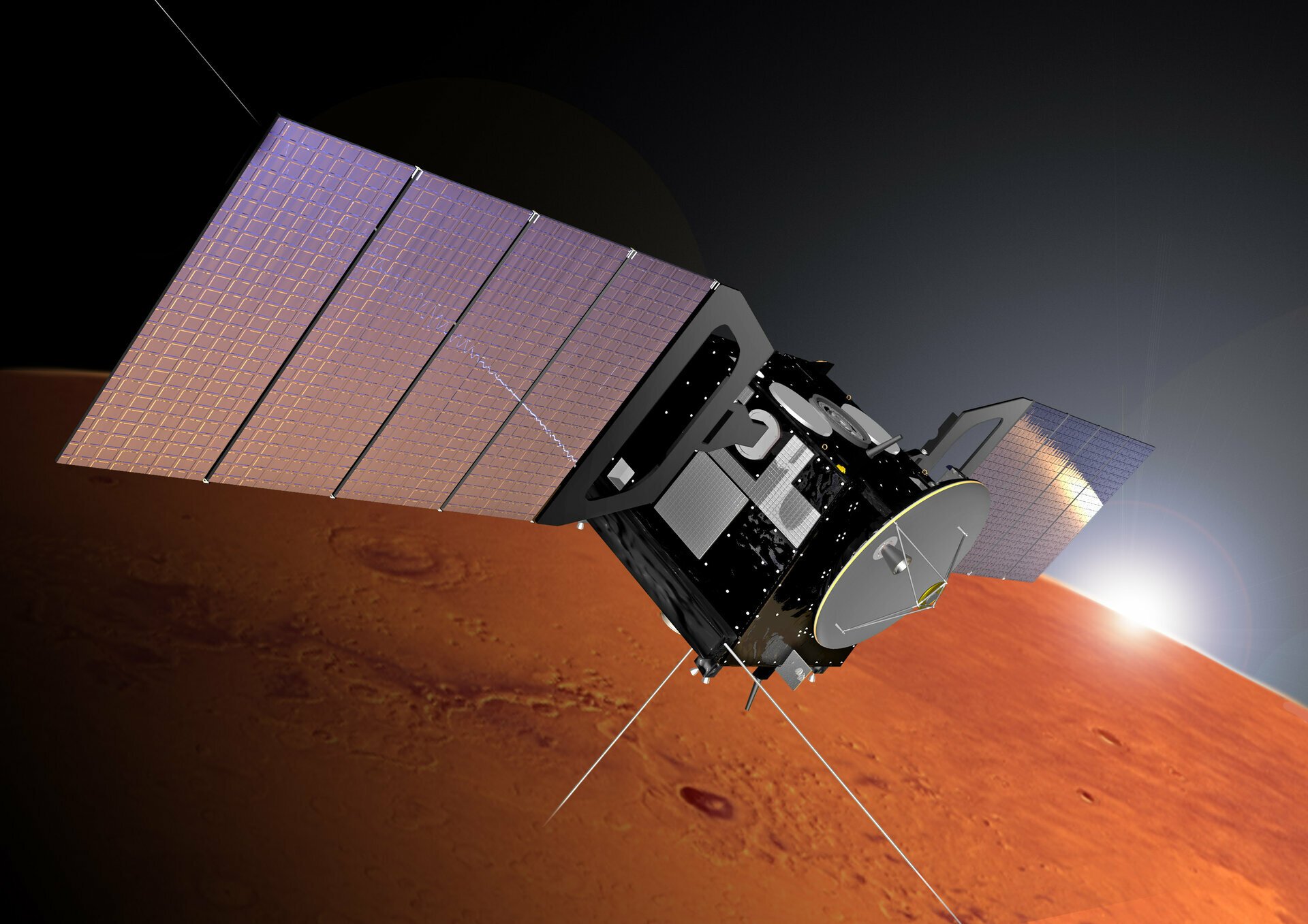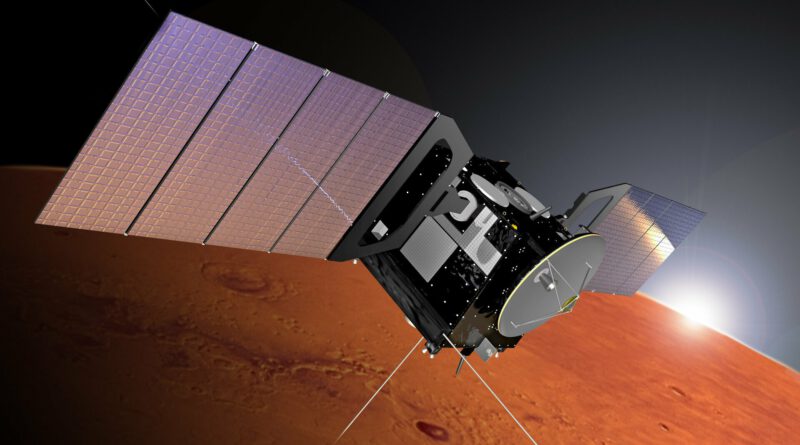Mars spacecraft looks back and snaps poignant view of Earth

Astronomers always want to look back home.
The European Space Agency’s Mars Express orbiter — which has been studying Mars from above for two decades — captured a poignant view of our planet and moon from millions of miles away.
“In these simple snapshots from Mars Express, Earth has the equivalent size as an ant seen from a distance of 100 metres, and we are all in there,” Jorge Hernández Bernal, a planetary scientist working on the orbiter’s mission, said in a statement. “Even though we have seen images like these before, it is still humbling to pause and think: we need to look after the pale blue dot, there is no planet B.”
In the footage below, you’re seeing the moon zip around Earth from 186 million miles (300 million km) away. It’s similar to view you’d see if you were standing on Mars, with binoculars, peering back at Earth.
Over the decades, the orbiter has provided researchers with bounties of Martian insight. It’s found evidence that Mars, earlier in its history, was a blue watery world with the ability to host life (though its unknown if any primitive Martian life ever existed). “Key discoveries include the presence of minerals that form only in the presence of water, the detection of water-ice deposits underground, and evidence to suggest volcanism on Mars may have persisted until recent time,” the European Space Agency said.
Want more science and tech news delivered straight to your inbox? Sign up for Mashable’s Light Speed newsletter today.
Down on the Martian surface, NASA currently has two car-sized rovers exploring the Red Planet’s desert. The Perseverance rover parachuted down to a region of Mars called the Jezero Crater, a place planetary scientists suspect once teemed with rivers and streams. Together with several orbiters, these trusty robots will guide NASA and other space agencies as they look for the best places to land future robotic explorers, and, one day, brazen astronauts.
